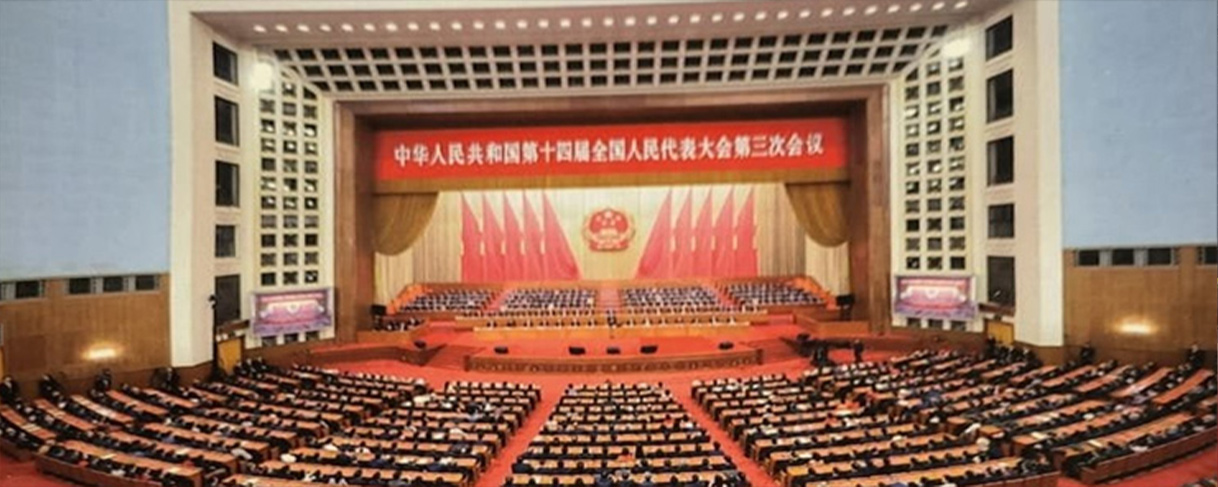- Mr. Jayadeva Ranade at NDC
- Mr. Jayadeva Ranade at NDC
- Mr. Jayadeva Ranade at NDC
Books

The book covers a crucial period when Xi Jinping, despite inner-Party opposition, decided to continue in China’s top three leadership positions for an unprecedented third term. It explores the popular dissatisfaction accentuated by the slowing economy, loss of millions of jobs, low salaries and rising prices, and Xi Jinping imposing progressively stringent controls on the populace to quell dissatisfaction from metamorphosing into uncontrollable protests. Xi Jinping also introduced administrative curbs and monitoring of the Chinese Communist Party (CCP)’s Politburo members accompanied by intensive ideological and political education of CCP cadres and People’s Liberation Army (PLA) personnel. Xi Jinping even personally vetted each cadre for the CCP Central Committee. The trade war with the US has exacerbated China’s economic difficulties.
The book shows Xi Jinping’s thus far unwavering efforts to make China a major world power rivalling, if not surpassing, the US by 2049. China has accordingly continued its aggressive policies to dominate Asia and effect the “rejuvenation” of China including reunification with Taiwan.
Rejuvenation, which includes “recovery” of so-called “lost” territories ensuring friction, interspersed with conflict, between India and China over the longer term is examined.
There is a lot of information and data on the Tibet Autonomous Region (TAR) in China's official media, but information concerning the cadres who govern the Tibet Autonomous Region (TAR) and some key aspects of China's policies on Tibet is very scanty. When available, the information is piecemeal and scattered and, therefore, denied to most except those who make determined efforts. This book is an initial attempt to make pertinent information on Tibet readily available to an interested reader. The emphasis is on presenting biographical sketches of the relatively more important cadres to enable the analyst and reader to form an impression about the individual, his future career prospects and possibly his affiliations. The book briefly discusses the Aid Tibet Programme. The programme's importance lies in the fact that it has ensured the exposure of many CCP cadres across China to the conditions in Tibet and had an important influence in their career paths. Consequently, over the years it has built a cohort of CCP cadres with a stake in the CCP and Central Government's policies on Tibet.
The book examines how since his appointment to China's three top posts - simultaneously for the first time in 30 years - Xi Jinping has deftly used ideology and nationalism to accumulate power and ensure the Chinese Communist Party (CCP)'s legitimacy and monopoly on power. Xi Jinping has imposed progressively stricter domestic measures leading to the steady hardening and inflexibility of the Chinese state. It looks at the reforms in the Party, Government and Military and the unprecedentedly sustained and bruising drive against corruption in the People's Liberation Army (PLA). In the process, Xi Jinping has eliminated political rivals and whittled down opposition to the most extensive and far reaching reforms the PLA has witnessed in its 90 years. Developments related to Tibet are especially analysed. The book analyses China's 'One Belt, One Road' - now called the 'Belt and Road Initiative' - and the China-Pakistan Economic Corridor initiatives, intended to alter its strategic environment and expand power and influence well beyond its borders and up to Europe. It concludes that China will squeeze the strategic space of its neighbours. China's rise and bid to establish itself as the dominant power in the Indo-Pacific, however, will not be uncontested. India, Japan and the USA's response will be important.



